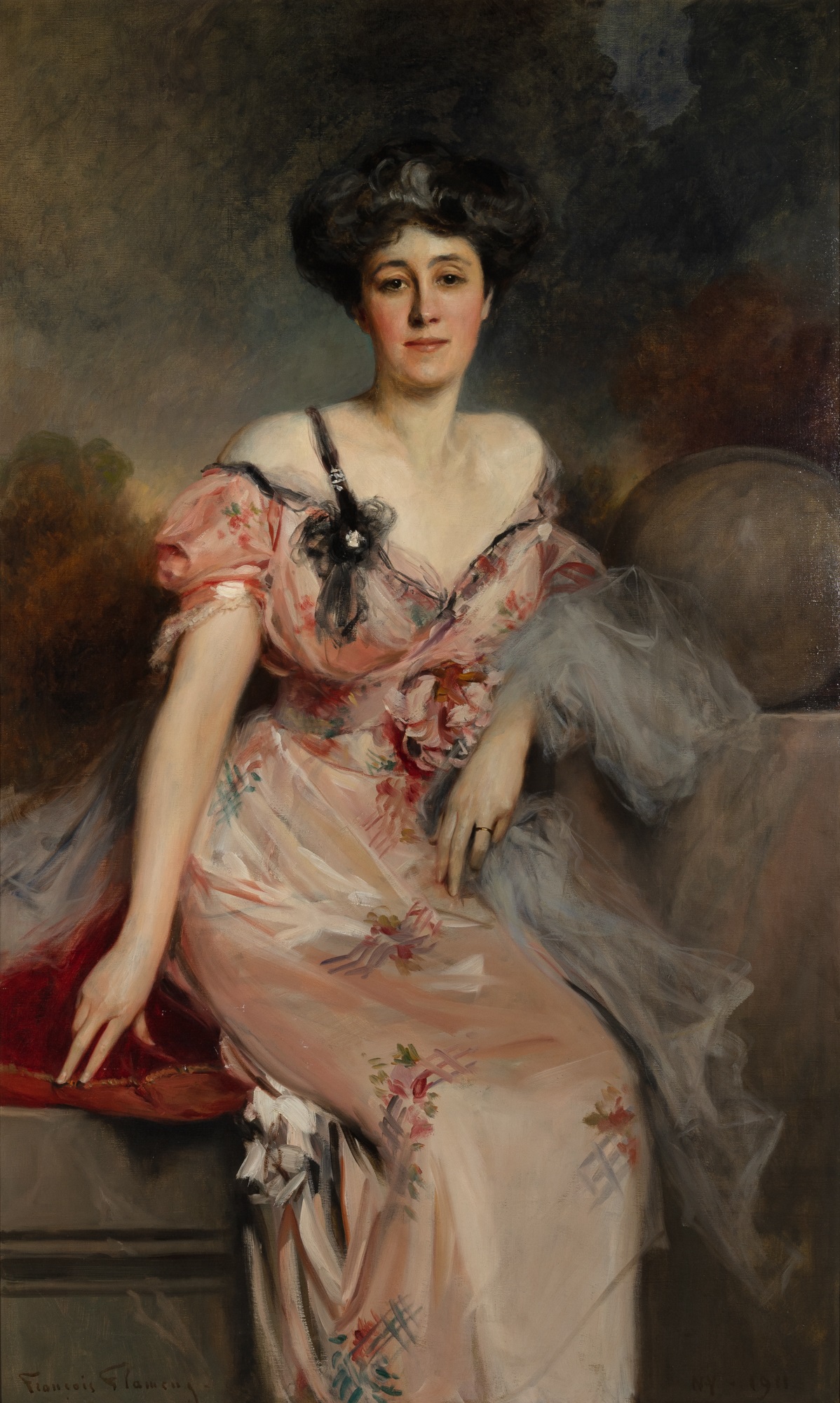
François Flameng
French, 1856-1923
François Flameng was born in Paris, the son of renowned engraver Léopold Flameng. Immersed in the arts from an early age, he studied at the École des Beaux-Arts under Alexandre Cabanel and Jean-Paul Laurens, where he developed the disciplined academic style that would define much of his career. His early success was marked by an ability to balance historical accuracy with visual elegance, making him a favorite among cultural institutions and private patrons alike.
Flameng gained prominence for his historical paintings and society portraits, as well as for major decorative commissions, including projects for the Sorbonne and the Opéra-Comique. His refined technique and subject matter earned him widespread acclaim and numerous honors, including France’s highest civilian distinction. He also taught at the École des Beaux-Arts, where he influenced a new generation of academic and military painters.
During World War I, he was appointed one of France’s first official war artists, producing on-site sketches and paintings that documented life at the front. These works were later donated to the Musée de l’Armée. After the war, he served as honorary president of the Society of Military Painters and remained a respected figure in French art until his death in 1923. Flameng’s legacy bridges the formality of 19th-century academic painting with the evolving social and national narratives of the early 20th century.